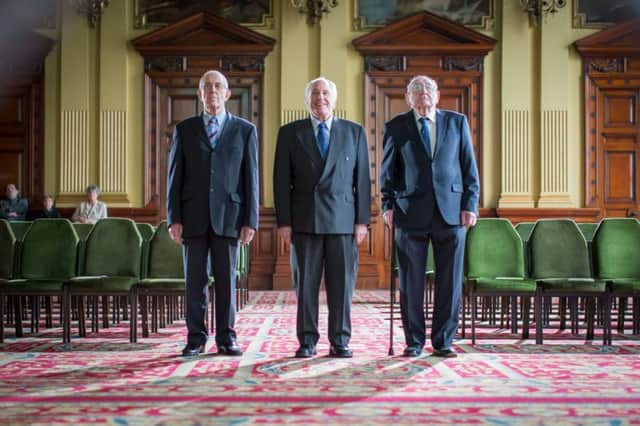Scots take on a dictator at Glasgow film festival


Nae Pasaran reveals how a group of workers at the Rolls-Royce factory in East Kilbride decided to show their support for the people of Chile by refusing to carry out the vital repairs of engines for Hawker Hunter fighter aircraft, used during the brutal right-wing military coup on 11 September 1973.
The boycott endured for four years but the Scottish workers never knew what impact they had. In fact their actions had become known about in Chile.
Advertisement
Hide AdDirector Felipe Bustos Sierra, who lives in Edinburgh, and whose father was a Chilean journalist in exile, reunited Stuart Barrie, Bob Fulton, Robert Somerville, Stuart Barrie and John Keenan, some of the leading protagonists, to tell their story.
The documentary also details the horrors of the Pinochet years, meets survivors and hears the Chilean side of the story.
Stuart Barrie, 73, from East Kilbride, one of the shop stewards involved in staging the boycott, described how the decision was made in March 1974.
“I was approached by another AEUW shop steward, Bob Fulton, who said ‘Stuart, there’s Chilean engines in here’.
“Our union had condemned the Chilean junta’s overthrow of the government and the torturing and killing of civilians and those who opposed it.
“So I said to Bob, ‘right, let’s black the f******’. Bob also said he was a Christian and didn’t want to work on them.
Advertisement
Hide Ad“I was 29 then, a bit of firebrand, I did things like that if I thought it was correct. We were all a wee bit proud of the way it worked out.
“Years later we heard that folk in Chile were inspired by us. We’ve met a guy who was in prison being tortured and he said he heard about our action on the radio his guard had. He said it gave him the will to live. It was a wee spark of life, it lifted him up.”
Advertisement
Hide AdAfter four years the engines, which had fallen into disrepair, were removed in the middle of the night. It is believed they were returned to Chile.
Mr Bustos Sierra said the film was a homage to the men.
“The image of the Hawker Hunter planes bombing La Moneda palace is one of the most iconic images of the coup. It was a very strong, irreversible image and the thought that someone somewhere had managed to defeat those planes stayed with me.
“Finding the men meant I could confirm things I thought were exaggerated. Because of what happened in Chile part of our past only exists through oral history. This film is part of the victory.”